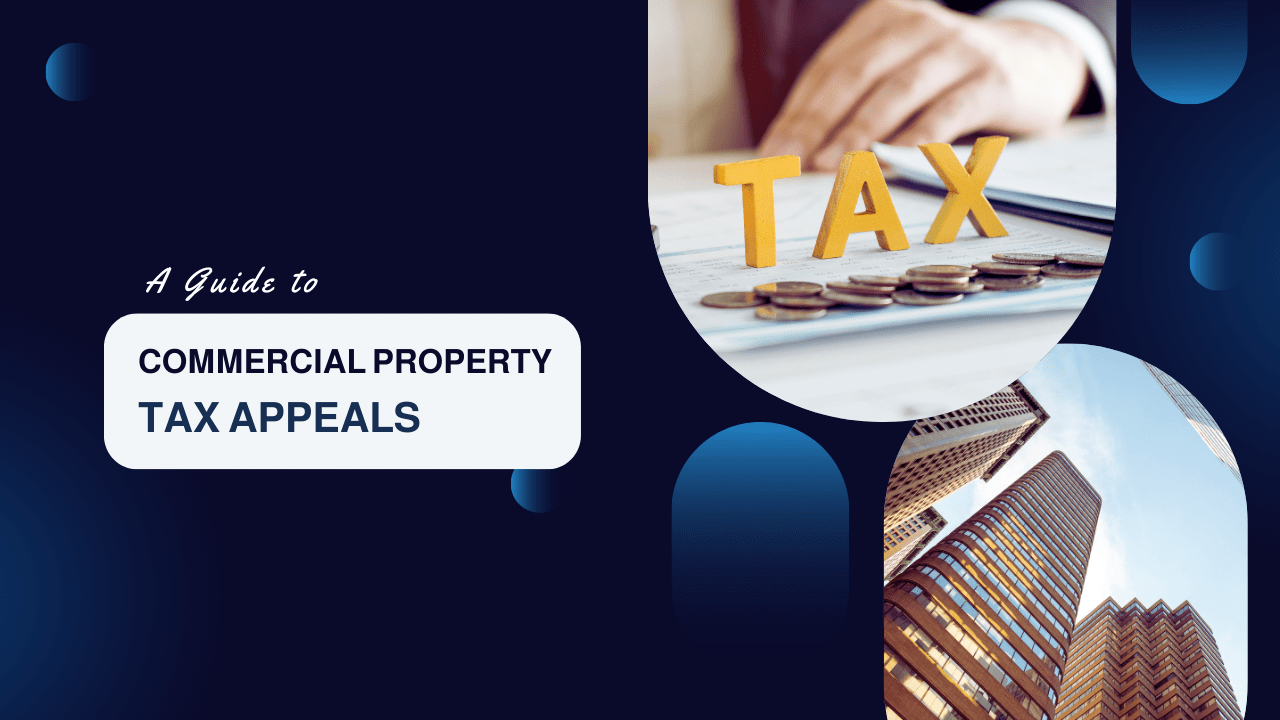How are you feeling about the taxes you pay on your commercial property in California?
This isn’t a state known for its low taxes; and, if you think you’re paying too much, it’s possible that you are.
Let’s talk about how appealing your state taxes, when appropriate, can maximize your return on investment, potentially saving you significant amounts on your commercial real estate investments.
Understanding California's Property Tax System

California's property tax system has unique features, largely due to Proposition 13, a constitutional amendment that limits property tax increases. Under Proposition 13:
Properties are assessed at their purchase price, with annual increases capped at 2% or the inflation rate, whichever is lower.
Properties are reassessed only when they change ownership or undergo new construction.
When this law was initially passed (in 1978), there was nothing in place to help an investor who had seen their property value decrease. There was no consideration that a property might lose value in the market. However, as you know, it’s certainly possible. The commercial real estate market in California, even over the last five years, has seen some dramatic shifts and some disappointing changes in value.
Proposition 8, which was passed just after Proposition 13 (also in 1978), sought to address this possibility. The law stipulated that property assessments could be reduced if there was a loss in market value.
Any adjustments that are made due to Proposition 8 are temporary. These do not establish a new value for your property, nor does it mean that your new value will be protected against an increase that’s more than the 2%. This means if your property’s market value returns to, or eventually exceeds, its value in later years, the assessed value may be increased immediately back to the adjusted value—regardless of whether that increase would exceed the 2% annual inflation factor established by Proposition 13.
Given these rules, discrepancies between your assessed value and the current market value might arise, offering an opportunity for appeal.
Why Appeal Your California Commercial Property Taxes?
 Property taxes are based on the assessed value of your property, and as we have discussed, that value may not always reflect the current market conditions. If your California commercial property's assessed value is higher than its actual market value, you could appeal your assessed tax rate and stop overpaying on taxes. By appealing your property taxes, you have the opportunity to correct this discrepancy and reduce your expenses.
Property taxes are based on the assessed value of your property, and as we have discussed, that value may not always reflect the current market conditions. If your California commercial property's assessed value is higher than its actual market value, you could appeal your assessed tax rate and stop overpaying on taxes. By appealing your property taxes, you have the opportunity to correct this discrepancy and reduce your expenses.
Before your appeal, you’ll need a good reason and ample evidence. Let’s take a look at what that means, and then we’ll walk you through the process of submitting your tax appeal.
Common Reasons for Appeal
Several factors may warrant an appeal of your California commercial property taxes. One of the most typical reasons is a decrease in market value due to economic conditions, changes in the neighborhood, or recent sales of comparable properties at lower prices. Additionally, errors in the property assessment, such as incorrect measurements, outdated data, or misclassification of the property type, can lead to inflated tax bills.
Other reasons for an appeal include the discovery of significant physical defects in the property that affect its value or the overestimation of income-generating potential in commercial properties. Understanding these common reasons can help you determine whether an appeal is justified and increase your chances of success.
Tips for Preparing Evidence for Your Appeal
There are specific steps you’ll have to take when you decide to appeal, and we strongly recommend that you consult your CPA or tax accountant. We can help you as commercial property management experts in California, but you’ll also want someone intimately familiar with the tax code to help.
The most important part of preparing for a property tax appeal is your proof. The gathering of solid evidence is crucial to strengthening your case. Here are some tips to help you compile and present your evidence effectively:
Collect Comparable Sales Data. Research recent sales of comparable properties in your area to establish a benchmark for your property's value. Ensure these comparisons are as closely aligned as possible in terms of size, location, and property type.
Obtain an Independent Appraisal. Consider hiring a qualified appraiser to conduct an independent assessment of your property's value. Their professional opinion can serve as compelling evidence during the appeal process. You’ll receive a report from them that can be valuable in preparing your case.
Document Property Conditions. Take photographs and gather detailed descriptions of any physical defects or issues that may impact the property's value. Ensure your documentation highlights any necessary repairs or recent maintenance issues.
Review Assessment Records. Examine the assessment records provided by the tax assessor's office for inaccuracies. Look for errors, which are most likely to be found in square footage, property classification, or outdated data that may have been used in calculating your property's assessed value.
Compile Financial Records. If applicable, compile documentation that illustrates your property's income-generating potential—such as lease agreements or historical income data—to substantiate claims of overvaluation based on income.
By systematically gathering and organizing this evidence, you will be better equipped to present a compelling argument for your property tax appeal.
Steps to Appeal Your Property Taxes

If you feel like you have a strong case to get your taxes reduced for your commercial property in California, here is what you need to do.
Step 1: Review Your Assessment
Start by carefully reviewing your property's assessment notice. Check for errors in property details or miscalculations in the assessed value. Consider recent sales of similar properties in your area to estimate your property's fair market value.
Step 2: Gather Evidence
If you believe your property is over-assessed, gather compelling evidence to support your claim. We talked about the best way to do this, and most of your best evidence will require that you gather information such as:
Recent sale prices of comparable properties (also known as "comps")
An independent appraisal of your property
Documentation of any changes to your property that could affect its value
Step 3: File an Appeal
In California, you must file an appeal with your County Assessment Appeals Board. The filing period generally runs from July 2 to November 30, but it can vary by county, so always check the specific dates for your area.
Your appeal should include:
A completed application form
Evidence supporting your claim
Payment of any required fees
Step 4: Attend the Hearing
Once your appeal is filed, a hearing will be scheduled. Be prepared to present your case clearly and confidently, using the evidence you've gathered. It's advisable to consult with a property tax consultant or attorney who specializes in California commercial real estate to strengthen your appeal.
Step 5: Await the Decision
The Assessment Appeals Board will review your case and issue a decision. If successful, your property's assessed value will be adjusted, and your tax bill will be reduced accordingly.
Potential Challenges to Understand.

Appealing property taxes can be complex, with varying success rates depending on the strength of your case and evidence. Be prepared for the possibility of a denied appeal and weigh the costs of pursuing further legal action against the potential tax savings.
Those challenges aside, if you think you have a case to be made it’s worth it to bring that appeal to the appropriate tax authorities. Now, the California commercial real estate market is a more precarious position than ever, and you want to take any advantage that’s available to you. As your California commercial property management resource, we can tell you that corporations, partnerships, and other legal entities are well-advised to review the current values of their California real estate in comparison to the property’s current assessed value. This is the only way to know for sure if action is warranted. It likely makes sense for many commercial taxpayers—particularly office property owners—to file assessment appeals seeking reductions in the assessed value pursuant to Prop 8.
The market has changed. Seize every advantage you can in order to protect your profitability and keep as much of your income as possible.
Appealing your commercial property taxes in California can be a valuable strategy for reducing expenses and maximizing profits in your real estate portfolio. By understanding the process and preparing a case that’s accurate, detailed, and authoritative, you can potentially lower your tax burden and enhance the profitability of your investments.
All of these details that we have discussed are for a general audience. We have provided instructions and advice for any commercial rental property owner. However, this is going to be a very nuanced process for you, depending on your property and your investment goals. So, let’s talk about your personal situation and how we can help you position yourself more favorably when it comes to taxes and your commercial investments.
For personalized guidance on navigating property tax appeals, contact us at Bell Properties Commercial Real Estate. Our expertise can help you optimize your approach and ensure the best possible outcome for your tax situation.



